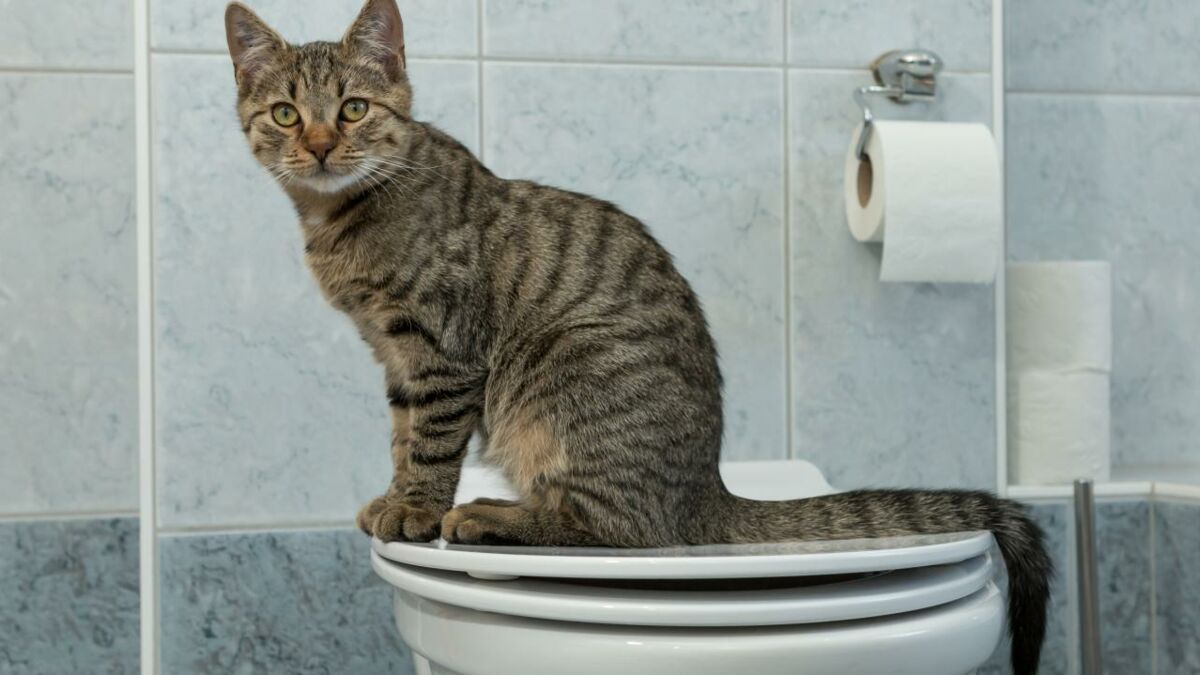Are you currently on the lookout for help about Don’t flush cat feces down the toilet?

Intro
As feline owners, it's essential to be mindful of how we throw away our feline pals' waste. While it may seem hassle-free to flush cat poop down the commode, this technique can have detrimental repercussions for both the atmosphere and human wellness.
Ecological Impact
Purging pet cat poop presents harmful microorganisms and parasites into the water supply, posing a substantial danger to marine environments. These impurities can adversely impact aquatic life and concession water quality.
Health and wellness Risks
Along with environmental worries, flushing cat waste can likewise posture health and wellness risks to human beings. Feline feces may contain Toxoplasma gondii, a parasite that can trigger toxoplasmosis-- a possibly serious health problem, especially for expectant females and people with damaged immune systems.
Alternatives to Flushing
Thankfully, there are safer and much more accountable ways to get rid of cat poop. Think about the complying with options:
1. Scoop and Dispose in Trash
One of the most typical method of dealing with feline poop is to scoop it into a naturally degradable bag and toss it in the garbage. Be sure to use a devoted trash inside story and deal with the waste promptly.
2. Usage Biodegradable Litter
Choose biodegradable cat litter made from materials such as corn or wheat. These clutters are environmentally friendly and can be safely thrown away in the trash.
3. Bury in the Yard
If you have a yard, take into consideration hiding pet cat waste in a marked area far from veggie yards and water sources. Make certain to dig deep sufficient to stop contamination of groundwater.
4. Set Up a Pet Waste Disposal System
Purchase a pet waste disposal system especially developed for feline waste. These systems utilize enzymes to break down the waste, lowering odor and environmental influence.
Conclusion
Liable family pet ownership extends beyond giving food and sanctuary-- it likewise entails appropriate waste monitoring. By avoiding purging cat poop down the commode and choosing alternate disposal approaches, we can decrease our ecological footprint and safeguard human health and wellness.
Why Can’t I Flush Cat Poop?
It Spreads a Parasite
Cats are frequently infected with a parasite called toxoplasma gondii. The parasite causes an infection called toxoplasmosis. It is usually harmless to cats. The parasite only uses cat poop as a host for its eggs. Otherwise, the cat’s immune system usually keeps the infection at low enough levels to maintain its own health. But it does not stop the develop of eggs. These eggs are tiny and surprisingly tough. They may survive for a year before they begin to grow. But that’s the problem.
Our wastewater system is not designed to deal with toxoplasmosis eggs. Instead, most eggs will flush from your toilet into sewers and wastewater management plants. After the sewage is treated for many other harmful things in it, it is typically released into local rivers, lakes, or oceans. Here, the toxoplasmosis eggs can find new hosts, including starfish, crabs, otters, and many other wildlife. For many, this is a significant risk to their health. Toxoplasmosis can also end up infecting water sources that are important for agriculture, which means our deer, pigs, and sheep can get infected too.
Is There Risk to Humans?
There can be a risk to human life from flushing cat poop down the toilet. If you do so, the parasites from your cat’s poop can end up in shellfish, game animals, or livestock. If this meat is then served raw or undercooked, the people who eat it can get sick.
In fact, according to the CDC, 40 million people in the United States are infected with toxoplasma gondii. They get it from exposure to infected seafood, or from some kind of cat poop contamination, like drinking from a stream that is contaminated or touching anything that has come into contact with cat poop. That includes just cleaning a cat litter box.
Most people who get infected with these parasites will not develop any symptoms. However, for pregnant women or for those with compromised immune systems, the parasite can cause severe health problems.
How to Handle Cat Poop
The best way to handle cat poop is actually to clean the box more often. The eggs that the parasite sheds will not become active until one to five days after the cat poops. That means that if you clean daily, you’re much less likely to come into direct contact with infectious eggs.
That said, always dispose of cat poop in the garbage and not down the toilet. Wash your hands before and after you clean the litter box, and bring the bag of poop right outside to your garbage bins.
https://trenchlesssolutionsusa.com/why-cant-i-flush-cat-poop/

Do you really like reading up on Don’t flush cat feces down the toilet? Try to leave a comment directly below. We would be pleased to find out your opinions about this piece. In hopes that you visit us again in the near future. Loved our content? Please share it. Help someone else locate it. Kudos for your time. Don't forget to check our website back soon.
Pricing